Ever felt like your team meetings are missing the mark? Maybe they're too long, too frequent, or lacking in engagement. These meetings can drain your team's time and zap morale, with 65% of employees agreeing that frequent meetings stop them from focusing on and completing their tasks.
But what if you could turn those meetings into springboards for success?
To ensure you're making progress toward your objectives, measuring and monitoring the success of your meetings is essential. Conducting surveys using reliable survey software can provide invaluable insights, helping you tweak your approach for future meetings.
In this article, we'll explore some of the best post-meeting survey questions and why they're important, as well as some tips that you can implement while collecting feedback from meeting attendees. Let's dive in!
TL;DR
-
Post meeting feedback is conducted to assess meeting effectiveness, improve the quality of your meetings, and enhance team productivity and morale.
-
You can conduct post-meeting feedback surveys to gather insights on various aspects such as meeting effectiveness, training sessions, team-building activities, and overall professional development.
-
By utilizing different post-meeting question types like Likert scale, rating scale, multiple choice questions, open-ended questions, and closed-ended questions, you can easily gather comprehensive feedback and identify areas for improvement for upcoming events.
-
By sending the surveys right after a meeting ends, using a mix of questions, keeping the survey short and relevant, and offering respondents anonymity, you can significantly boost the effectiveness of your post-meeting surveys.
-
Zonka Feedback is an effective online survey tool that helps you create post meeting surveys, share them through multiple channels, analyze survey results, and take action to close the feedback loop. schedule a demo to enhance the meeting experience!
Build and Send a Post Meeting Survey Today
Choose from over 30+ question types, add your own themes and create amazing meeting evaluation surveys that people love answering.

What is Post-Meeting Feedback?
Post-meeting feedback refers to the process of collecting input from meeting participants after a meeting has concluded. It is used to evaluate the effectiveness of the meeting, gather insights into participants' experiences and opinions, and identify areas for improvement in coming meetings.
This feedback can help you understand what worked well and what could be enhanced, ultimately leading to more productive and engaging meetings.
Here's a meeting feedback survey template that you can distribute among your attendees to understand how effective was your meeting.
Why are Post Meeting Effectiveness Survey Questions Important?
Post-meeting surveys provide a direct pathway to improvement, uncovering what worked well and what needs tweaking. This ensures that the next meeting is not only productive but also a wise use of everyone's time. Here are some more reasons why you must implement meeting effectiveness survey questions.
-
Insight into Meeting Success: Post-meeting survey questions provide insight into the overall success of a meeting, highlighting what worked well and what didn't.
-
Measure Meeting Objectives: These questions can gauge how well the meeting achieved its objectives, helping to evaluate its effectiveness in reaching its intended outcomes.
-
Boost Engagement and Morale: By soliciting feedback from participants, it demonstrates that their opinions are valued, which can boost engagement and morale.
-
Optimize ROI (Return on Investment): Ensure meetings are productive and wise use of everyone's time, maximizing the return on investment for each meeting.
-
Performance Benchmarking: Post-meeting feedback can serve as a benchmark for future performance, enabling you to track improvements over time and compare meeting effectiveness across different sessions.
Post Meeting Survey Questions to Ask Attendees Based on Use Cases
To ensure future meetings are even more impactful, let us look at the post event survey questions that you can utilize to gather feedback and improve future meetings.
a. General Meeting Feedback Questions
If you're seeking general feedback without delving into specifics, consider using basic questions to gauge attendees' overall perception of your meetings. These questions offer a quick pulse check to ensure your meetings are well-received and can contribute to improving your future events.
-
How would you rate the overall effectiveness of the meeting?
-
Were the meeting objectives clearly communicated?
-
Did the meeting stay on track and within the scheduled time?
-
How would you rate the level of engagement during the meeting?
-
Do you feel your input was considered during the meeting?
-
Do you have any suggestions for improving future meetings?
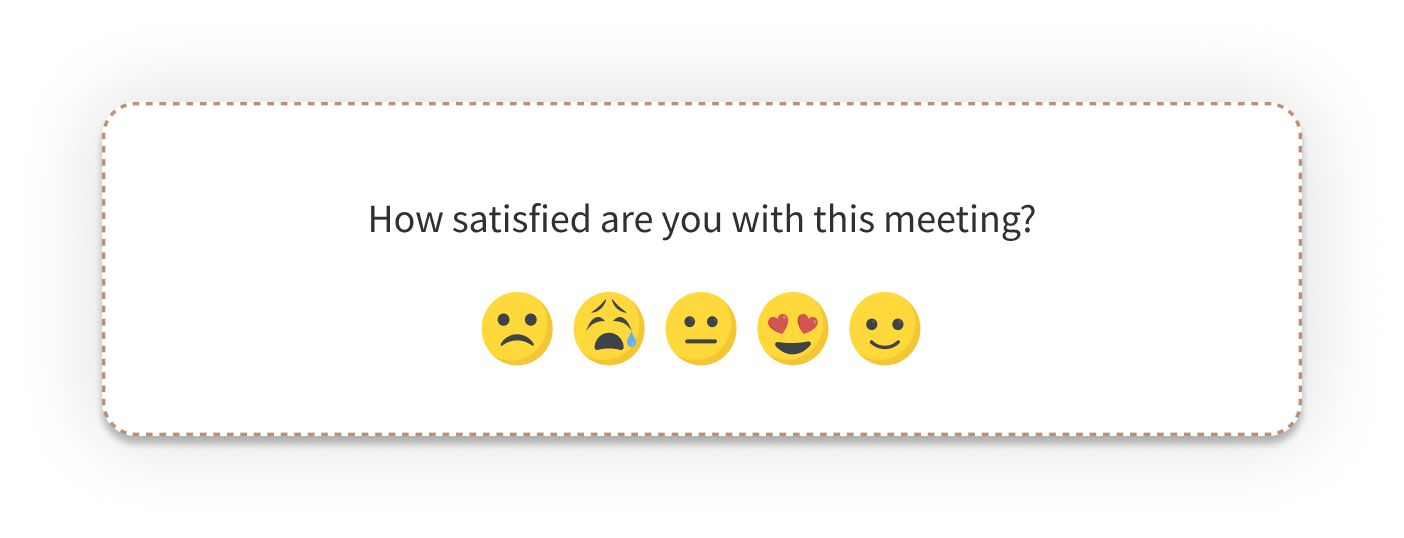
b. Sample Survey Questions for Meeting Feedback on Training Experience
By using training feedback questions, you can gather valuable insights on your training sessions. Through these questions, you can assess participants' overall satisfaction, knowledge retention, and suggestions for improvement. You can use this feedback to enhance future training programs and ensure they meet participants' needs.
-
How would you rate the clarity of the trainer?
-
Were the key points of the training effectively conveyed?
-
Were the visuals (slides, materials) helpful and clear?
-
Were there enough opportunities for interaction and questions?
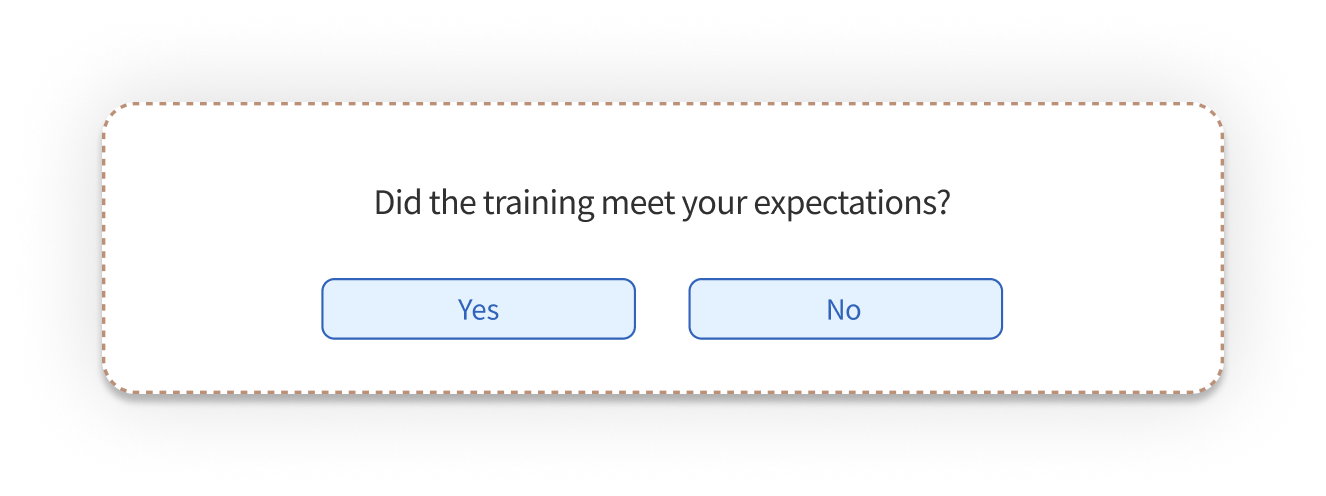
c. Meeting Feedback Survey Questions for Employee Satisfaction
Not many people enjoy meetings, and they aren't necessarily meant to be enjoyable. However, it's important to periodically assess your employees' satisfaction with their meetings. You can use these post-meeting survey questions to gauge their preferences and improve meetings in the future.
-
Are you satisfied with the frequency and duration of these meetings?
-
What suggestions do you have to make these meetings more engaging?
-
How well do you think your opinions and ideas are considered during these meetings?
-
Do you feel that action items and decisions made during these meetings are effectively communicated and followed up on?
-
How do you feel these meetings contribute to your personal and professional development within the company?
d. Meeting Evaluation Survey Questions for Team Building or Brainstorming Session
Through team-building activities or brainstorming feedback, you can assess the effectiveness of your team, their creativity, collaboration, and problem solving skills. You can also evaluate participants' engagement levels and the quality of ideas generated.
-
How would you rate the level of participation and collaboration?
-
Did the session encourage creativity and idea-sharing?
-
Did you feel comfortable contributing your ideas?
-
Did the session meet your expectations for team building/brainstorming?
-
Would you like to see more of these types of sessions in the future?
e. Professional Development Survey Questions for Meeting Feedback
Meetings can have a range of outcomes, but one of the most critical is promoting the professional growth of employees. These questions can help you evaluate this aspect and gather insightful answers and suggestions. Additionally, you can use these questions to gauge employee engagement, gather feedback on specific meeting agenda items, and assess the overall effectiveness of your meetings.
-
How well did the meeting address your professional development goals?
-
Did you gain any new skills or perspectives as a result of attending this meeting?
-
Were there any specific topics or discussions during the meeting that you found particularly relevant to your professional growth?
-
How well did the meeting support your ongoing development and learning needs?
f. Meeting Effectiveness Questions
Meeting effectiveness survey questions for post meeting surveys help assess the overall impact and success of your meetings. They allow you to gather feedback on the meeting's organization, content relevance, and overall efficiency, helping you refine your team meetings for greater productivity.
-
What aspect of this meeting did you find most valuable?
-
How well did the meeting achieve its stated objectives?
-
Did the meeting encourage open and constructive discussion?
-
Did the meeting provide actionable takeaways or next steps?
Pre Event Survey Questions
Pre event survey questions are a valuable tool for gathering information and insights before a meeting or event. By asking these questions, you can better understand attendees' expectations, preferences, and needs, allowing you to tailor the event to meet these requirements, and setting your corporate event speakers up for success.
Additionally, pre event surveys can help identify potential issues or challenges that need to be addressed beforehand, ensuring a smoother and more successful event.
Here are some survey questions that you can utilize to collect feedback from respondents before the meeting or event:
-
What are your main objectives for attending this event?
-
How did you hear about this event?
-
What topics are you most interested in learning about during the event?
Types of Meeting Evaluation Survey Questions
To create post meeting surveys, you can leverage various types of survey questions which will add depth and nuance to the feedback you receive. Let's explore different types of questions that can provide valuable insights into meeting effectiveness and attendee satisfaction.
1. Likert Scale Survey Questions
Utilizing Likert scale surveys that have questions ranging from 'Strongly Disagree' to 'Strongly Agree,' provides a structured format to assess participant opinions regarding the meeting's clarity, engagement, and value. Adding this scale to your survey enables a comprehensive understanding of participant perceptions, helping in the evaluation of the meeting's effectiveness.
-
Please rate the overall effectiveness of the meeting. (Scale: very ineffective to very effective)
-
To what extent were the meeting objectives achieved? (Scale: not at all achieved to exceeded expectations)
2. Rating Scale Survey Questions
Adding rating scale surveys like 1 to 5 rating scale surveys or 1 to 7 rating scale surveys provides a concise method to evaluate participant satisfaction regarding specific meeting aspects, such as content or pace. Integration of this scale into your survey facilitates a comprehensive assessment of participant sentiments towards different elements of the meeting.
-
Rate the effectiveness of the meeting in achieving its goals.
-
Please rate the level of interaction and engagement during the meeting.
3. Multiple Choice Questions
Utilizing multiple choice question with predefined answer choices, such as 'Yes/No' for aspects like meeting punctuality, facilitates efficient data collection regarding common concerns such as logistical arrangements and adherence to the agenda. These questions can help you identify specific areas for enhancement in future sessions.
-
In your opinion, was the pace of the meeting appropriate?
-
Too slow
-
Slightly slow
-
Just right
-
Too fast
-
-
How would you rate the quality of the keynote speaker/presenter?
-
Excellent
-
Good
-
Average
-
Poor
-
Very Poor
-
4. Open-ended Questions
Employing open-ended question can encourage participants to elaborate on their experiences, providing nuanced insights and suggestions for improvement. Integration of open-ended survey questions enriches the survey with qualitative data that may not be captured through other question formats, enhancing the depth of feedback received in a post meeting survey.
-
What did you find most valuable about the meeting?
-
Do you have any additional comments or suggestions for future sessions?
5. Closed-ended Questions
Utilizing binary options, such as 'Yes/No' for queries like 'Were the objectives achieved?' offers straightforward data for analysis. These closed-ended questions help in confirming factual information regarding goal attainment or the assignment of action items, enhancing the post feedback survey's ability to assess meeting effectiveness.
-
Was the meeting facilitated effectively by the meeting host?
-
Were the meeting objectives clearly communicated at the beginning of the meeting?
-
Did you feel your input was valued during the meeting?
Tips for Conducting Meeting Feedback Surveys
While meeting feedback can provide feedback insights, maximizing its impact requires following best practices. To enhance the effectiveness of your meetings or events, consider implementing these tips.
-
Send the Surveys Immediately: Immediate feedback ensures responses are fresh and accurate, capturing the meeting's impact effectively. You can use automated survey tools to streamline the process and send surveys promptly after the meeting's conclusion.
-
Use a Mix of Questions: Mix open-ended questions for detailed insights and free expression with closed-ended questions for quick, quantitative data. This balance gathers both qualitative and quantitative data, aiding comprehensive analysis.
-
Use Reliable Survey Software: Opt for a powerful survey software that offers user-friendly interfaces and robust analysis features. This will ensure accurate data collection and efficient processing, enhancing the effectiveness of your feedback surveys.
-
Keep Surveys Short and Relevant: Respect participants' time by keeping surveys concise and focusing on relevant topics to increase response rates. This approach also helps maintain participant engagement throughout the survey.
-
Offer Anonymity: Ensure respondents feel comfortable providing honest feedback by leveraging anonymous feedback tools that offer anonymity in surveys in collecting meeting feedback. Anonymity can lead to more candid responses, providing valuable insights for improvement.
Conclusion
Effective questioning is key to meaningful dialogue. Its impact is magnified when delivered with genuine enthusiasm. To benefit fully, approach post meeting survey questions with a sincere desire to learn, listening patiently, and engaging genuinely with respondents to honor their input.
By mastering this approach, you can not only conduct more effective meetings, memorable events, and compelling product demos but also forge strong and meaningful connections with each survey participant.
By utilizing a survey tool like Zonka Feedback, you can easily create different kinds of surveys like post meeting survey, pre event survey, post event survey and more to collect feedback. You can analyze responses to insightful feedback and take action to execute effective meetings in the future.
Begin your transformation today by scheduling a demo and revolutionize the way you conduct meetings and events.

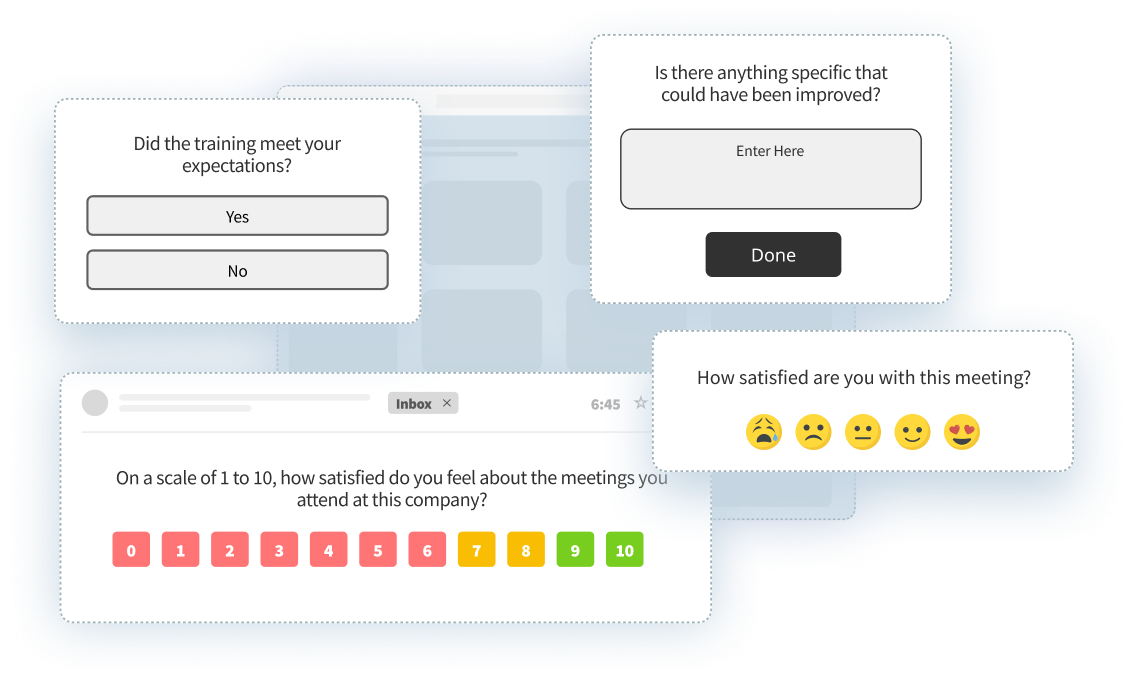


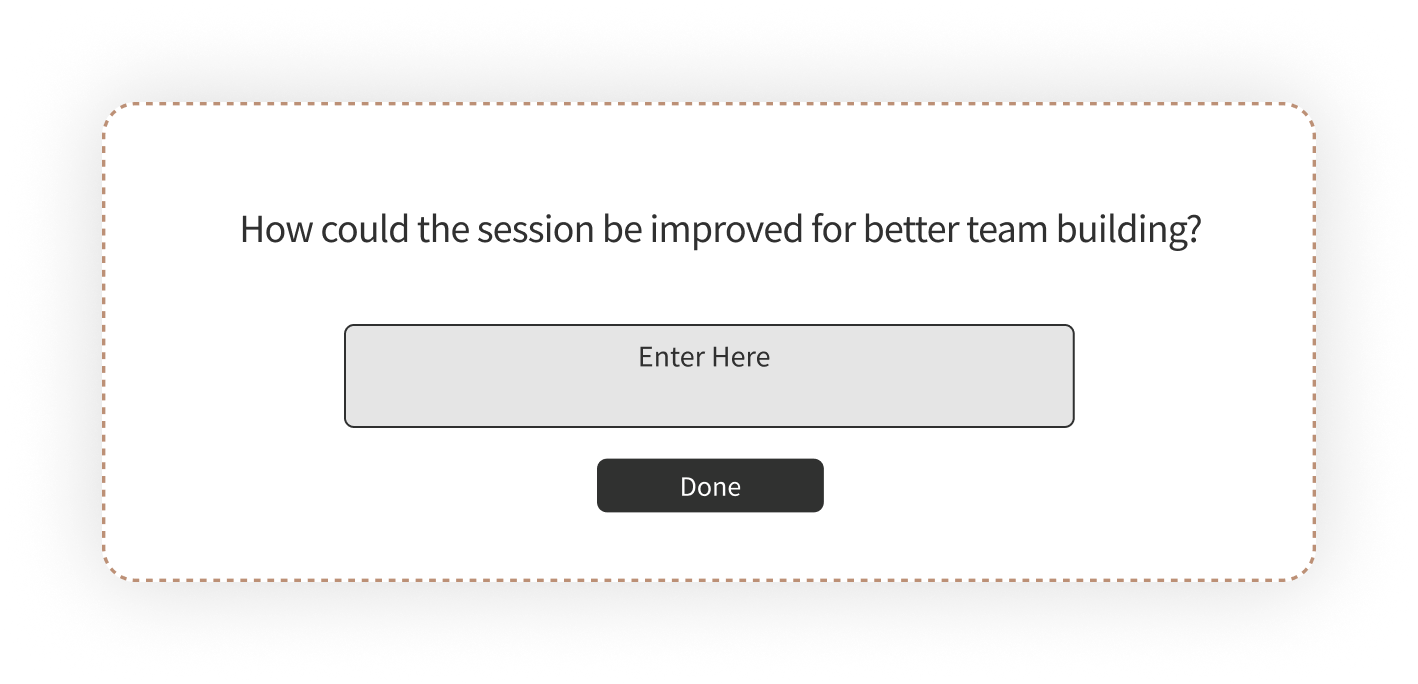
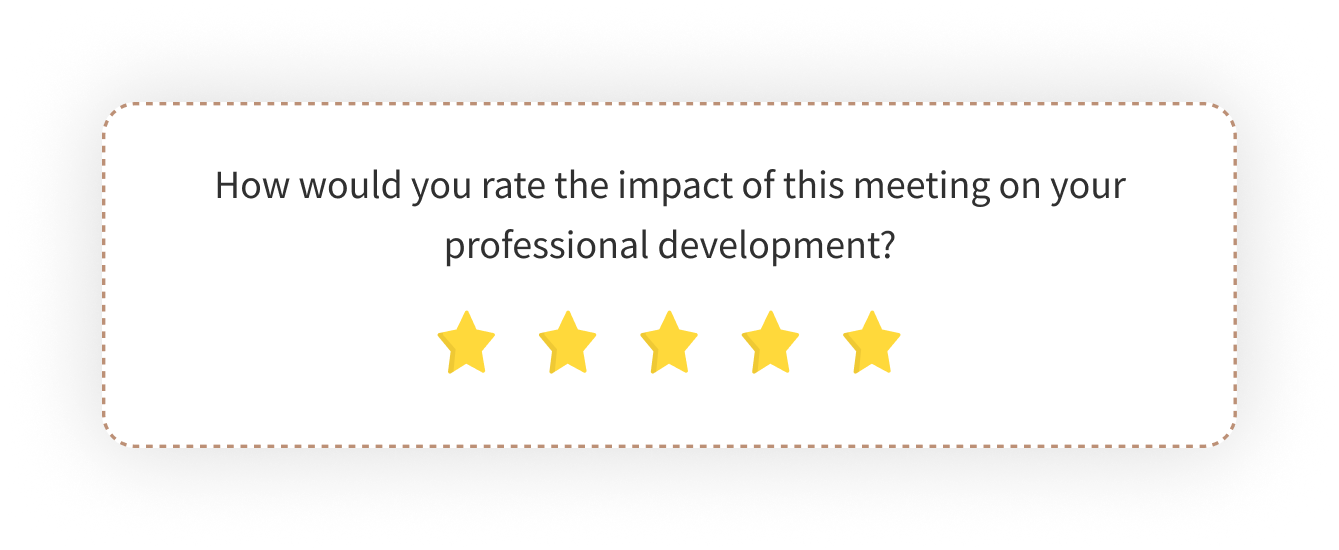
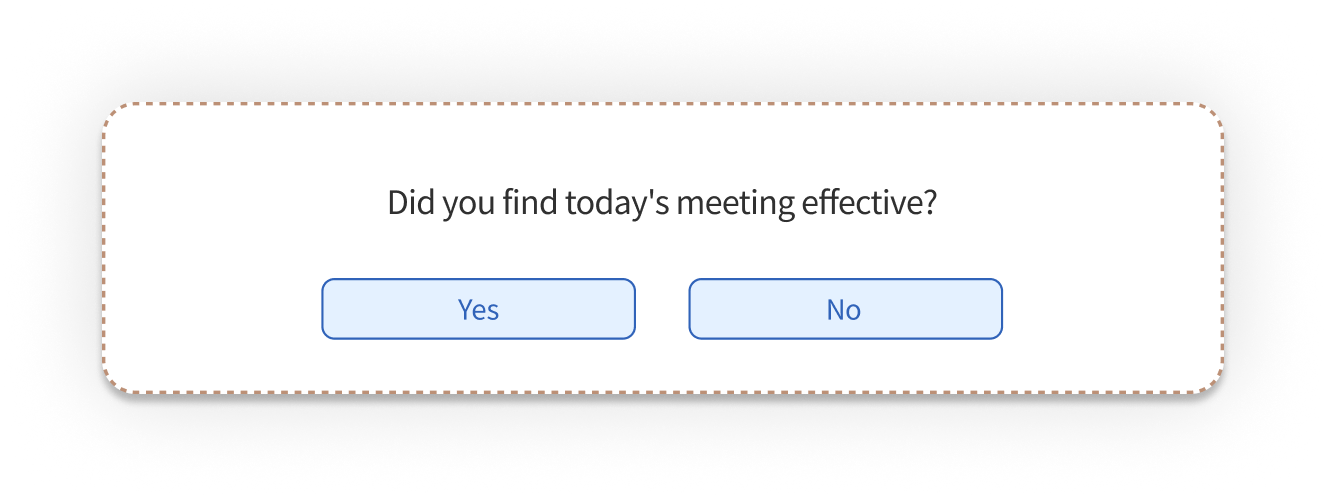
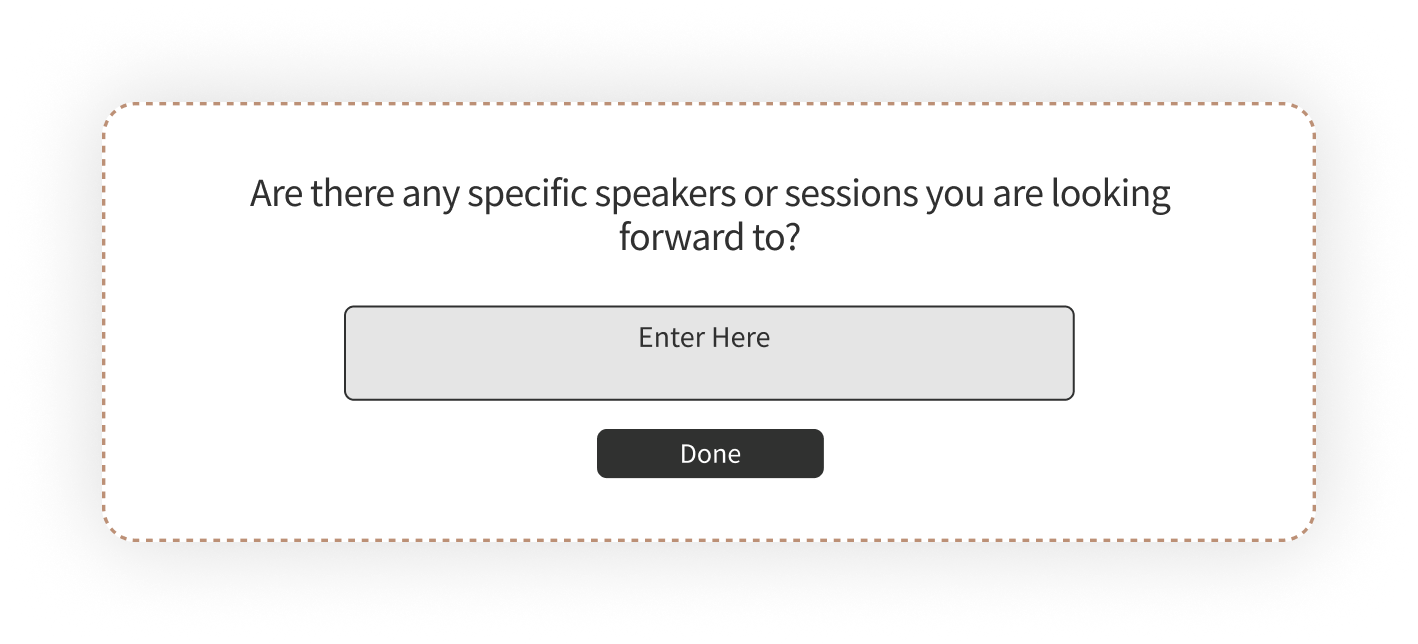
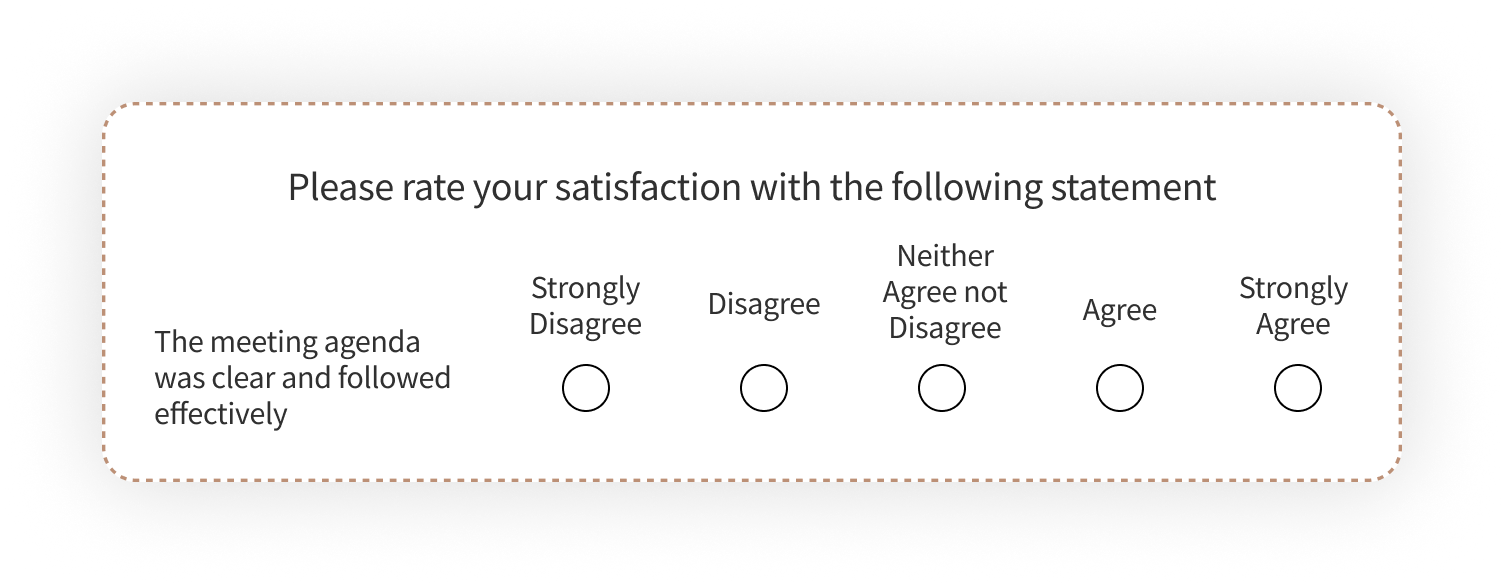
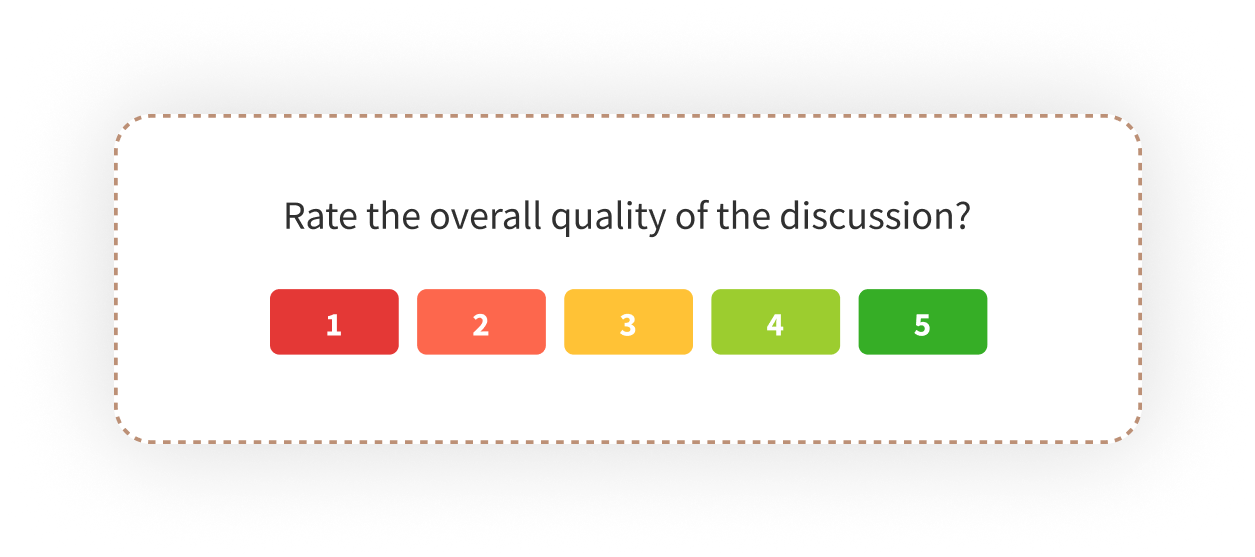
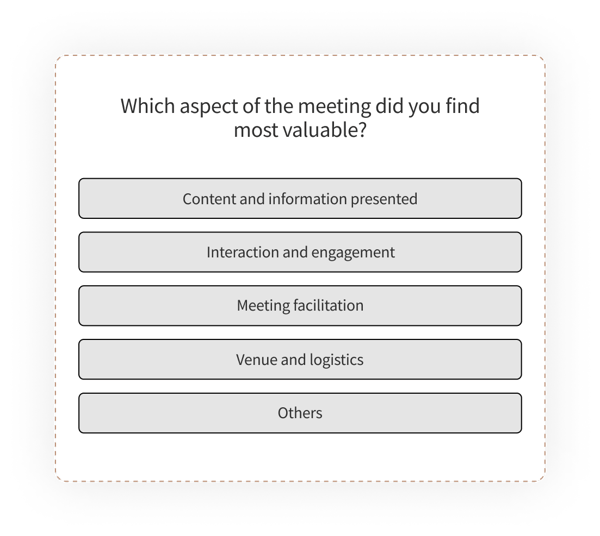
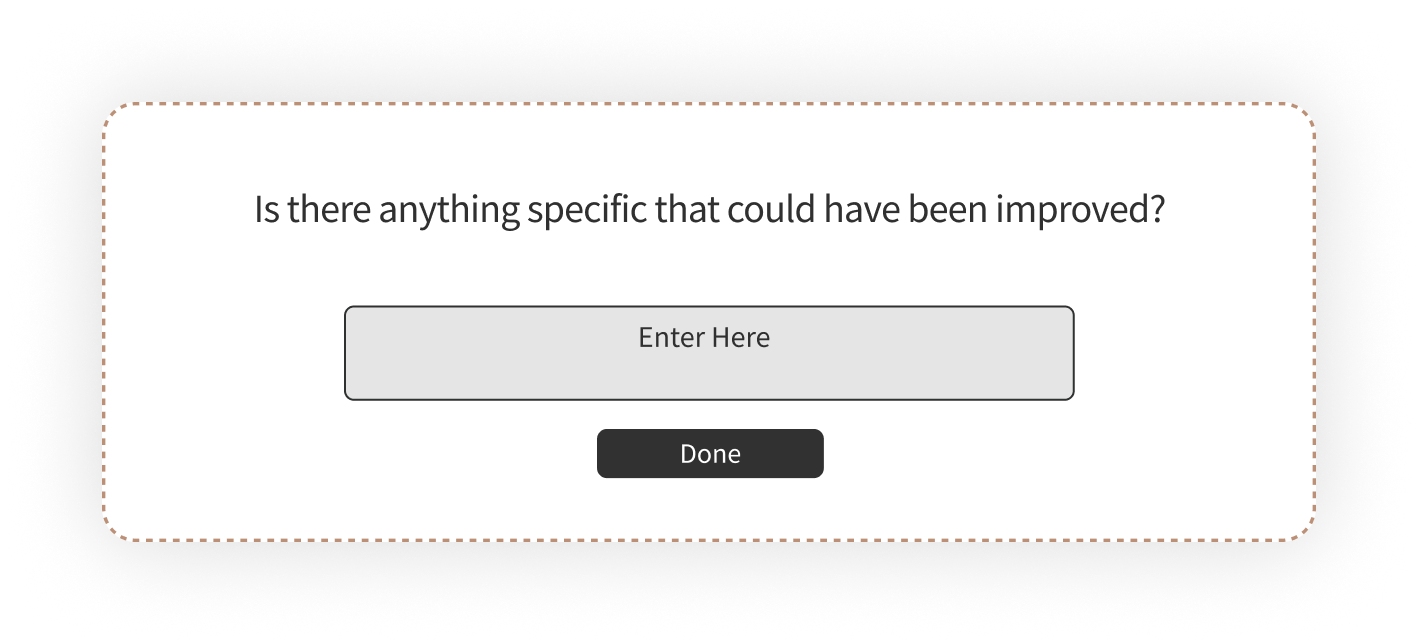
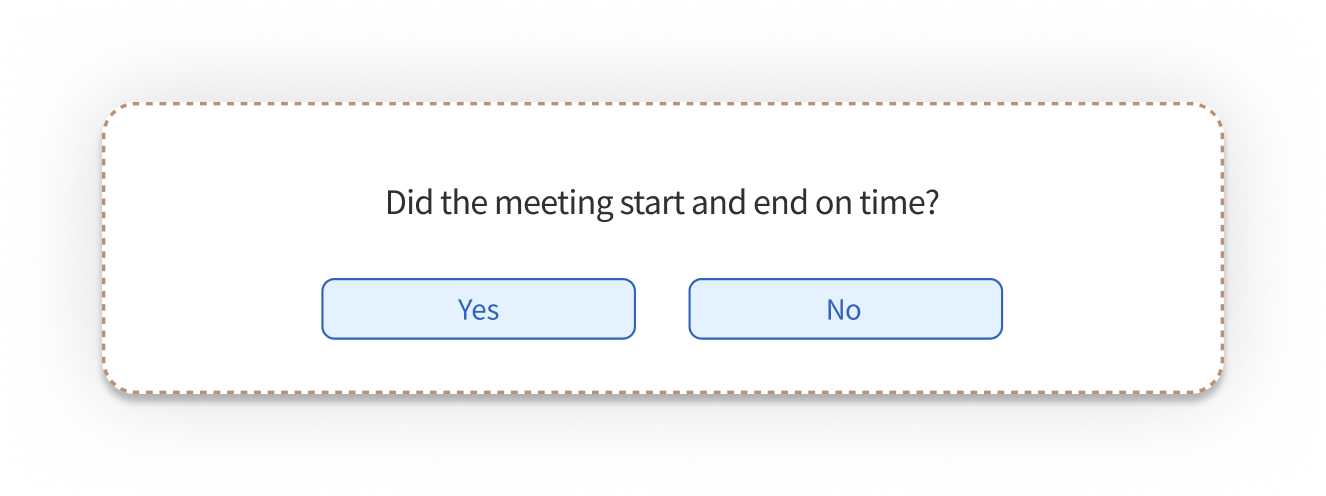


.png)
.jpg)